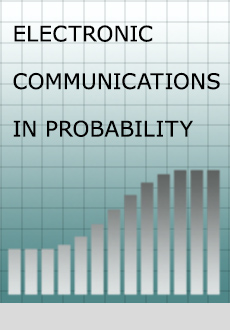Abstract
Assume that $X$ is a real-valued martingale starting from $0$, $H$ is a predictable process with values in $[-1,1]$ and $Y$ is the stochastic integral of $H$ with respect to $X$. The paper contains the proofs of the following sharp weak-type estimates. (i) If $X$ has continuous paths, then $$ \mathbb{P}\left(\sup_{t\geq 0}|Y_t|\geq 1\right)\leq 2\mathbb{E} \sup_{t\geq 0}X_t.$$<br />(ii) If $X$ is arbitrary, then$$ \mathbb{P}\left(\sup_{t\geq 0}|Y_t|\geq 1\right)\leq 3.477977\ldots\mathbb{E} \sup_{t\geq 0}X_t.$$The proofs rest on Burkholder's method and exploits the existence of certain special functions possessing appropriate concavity and majorization properties.
Citation
Adam Osekowski. "Maximal weak-type inequality for stochastic integrals." Electron. Commun. Probab. 19 1 - 13, 2014. https://doi.org/10.1214/ECP.v19-3151
Information





